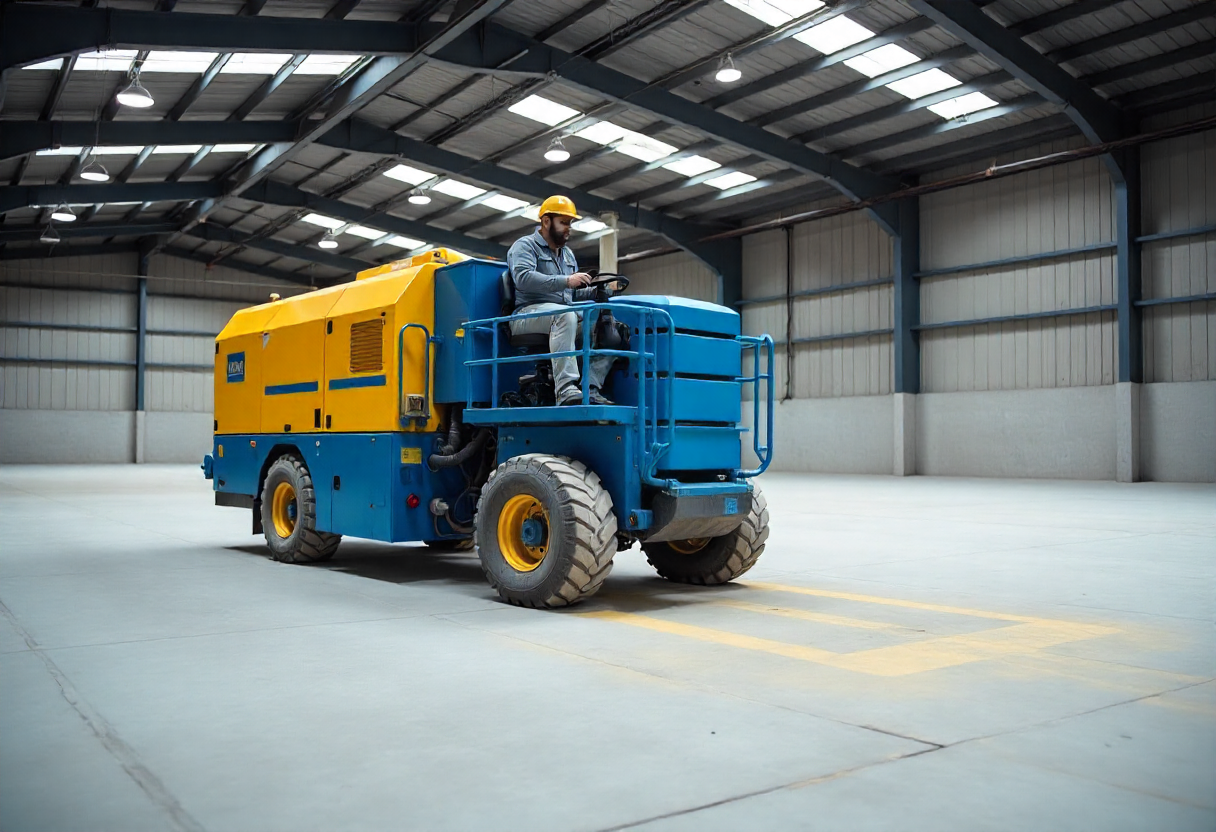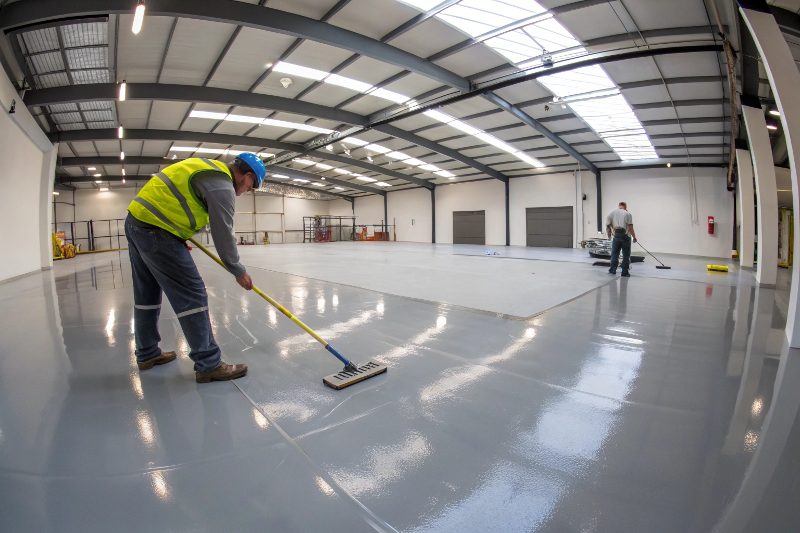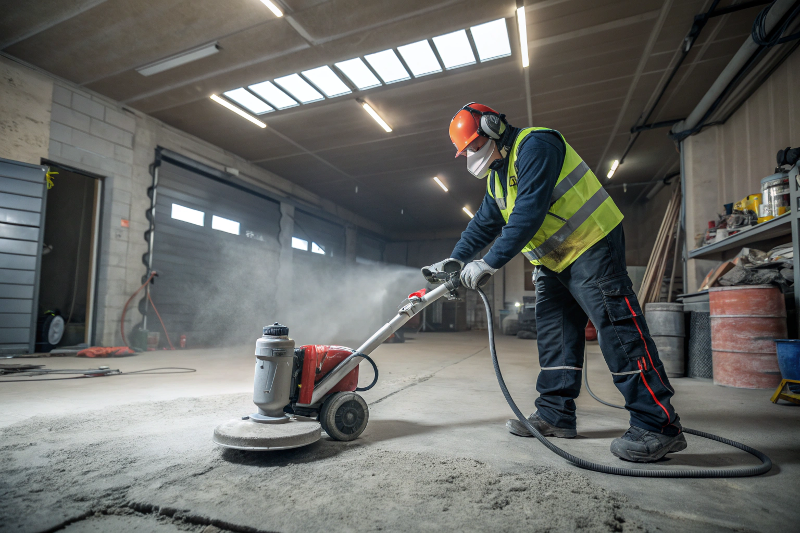High-Traffic Warehouse Flooring: What Heavy Duty Really Means
Heavy-duty gets thrown around a lot, but what does it actually mean for warehouse flooring? We’re talking about systems engineered to handle specific, measurable demands that would destroy standard floors in months.
Real heavy-duty flooring withstands 10-tonne forklifts, making hundreds of passes daily without surface wear. It resists impact from pallets dropped from height without cracking. The coating thickness measures in millimetres, not microns, providing substantial protection rather than just a thin seal.
Heavy-duty means chemical resistance that handles industrial solvents, oils, and cleaning agents without degrading. It means compressive strength ratings that match your equipment loads with safety margins built in. And it means installations that last 15-20 years under continuous industrial use, not 3-5 years before needing replacement.
That’s the difference between actual heavy-duty in

Epoxy Floor Coating Systems for Industrial Environments
Epoxy floor coating systems deliver the durability industrial facilities require. These multi-layer systems bond directly to your concrete substrate, creating a protective surface that resists chemicals, impacts, and constant traffic. The coating penetrates the concrete pores and forms a mechanical bond that won’t peel or delaminate under normal industrial use.
We install epoxy systems ranging from thin-film coatings for light industrial applications to high-build systems for heavy-duty environments. The thickness and formulation match your facility’s specific demands — whether that’s forklift traffic, chemical exposure, or temperature extremes.
Application involves surface preparation, primer coating, base coat layers, and a topcoat designed for your operational requirements. The result is a seamless, durable surface that protects your concrete investment while improving safety and appearance across your Ipswich industrial facility.
Industrial-Specific Requirements
Industrial warehouse flooring needs to meet requirements that standard commercial floors don’t face. Your facility operates under conditions that demand specialised performance from every square meter of flooring. We design our systems around these real-world demands to deliver floors that perform reliably under the toughest conditions.
Heavy Machinery and Forklift Traffic Considerations – Constant forklift movement creates point loads and abrasion that regular floors can’t withstand. Our systems account for your specific equipment weights, turning radii, and traffic patterns.
Load-Bearing Capacity Specifications – We calculate load requirements based on your heaviest equipment and typical loading scenarios to guarantee your floor won’t fail under operational stress.Chemical Resistance for Industrial Environments – Different chemicals require different resistance levels. We match coating chemistry to your specific exposure risks.Safety Compliance (AS/NZS Standards) – All installations meet Australian workplace flooring standards for structural integrity and performance.Anti-Slip Requirements for Worker Safety – Surface texture gets customised to provide appropriate slip resistance for your operational conditions.
Industrial Flooring Solutions That Match Your Operation
Different warehouses face different challenges. We install the right flooring system for what your facility actually does day-to-day. High-build epoxy systems create thick protective barriers that handle constant forklift traffic without breaking down. Polyurethane concrete absorbs the serious impacts that loading docks take from dropped pallets and equipment. Anti-static flooring controls electrical discharge in electronics warehouses to protect sensitive components and meet safety standards.
Seamless systems work perfectly for food processing and pharmaceutical facilities that need smooth surfaces with zero joints where bacteria could hide. And when you can’t shut down for days, our rapid-cure options get you back to full operations within 24 hours of installation. Each system delivers specific performance for specific industrial demands.
Load Testing and Quality Assurance for Industrial Floors
Every industrial floor we install undergoes rigorous quality assurance before we hand over the project. We don’t just install and walk away — we verify performance through systematic testing that confirms your floor meets specified requirements. Our testing protocols document that your flooring system performs as designed and meets the standards your operation demands. Quality control happens at every stage of installation, not just at the end. We test before, during, and after application to catch potential issues before they become problems.
- Substrate Moisture Testing – Pre-installation testing prevents adhesion failures caused by excessive concrete moisture levels common in Queensland’s humid climate.
- Load-Bearing Verification – Testing confirms your floor handles specified equipment weights and operational loads without flexing or failing.
- Adhesion Testing – Pull-off tests verify proper bonding between coating layers and substrate to prevent delamination.
- Surface Hardness Measurements – Shore D hardness testing documents the coating’s resistance to impacts and abrasion.
- Thickness Verification – Measurements throughout installation ensure uniform coating depth across the entire floor surface.
- Documentation and Certification – You receive complete test results proving your floor meets AS/NZS standards and manufacturer specifications for workplace inspections.
Industrial Floor Resurfacing for Aging Ipswich Warehouses
Older warehouse floors don’t need complete replacement. Industrial floor resurfacing restores deteriorated concrete surfaces at a fraction of replacement costs. We assess your existing floor’s condition, repair structural damage, and apply new coating systems that deliver decades of additional service life.
The resurfacing process starts with surface preparation to remove failed coatings, oils, and contaminants. We repair cracks, spalls, and damaged areas before applying new epoxy or polyurethane systems. The result looks and performs like a brand new floor without the expense and downtime of complete removal and replacement.
Ipswich facilities built in the 70s, 80s, and 90s often have concrete that’s structurally sound but surface-damaged. Resurfacing preserves that solid foundation while creating a protective top layer designed for modern operational demands. Your warehouse gets upgraded performance while staying operational throughout most of the installation process.
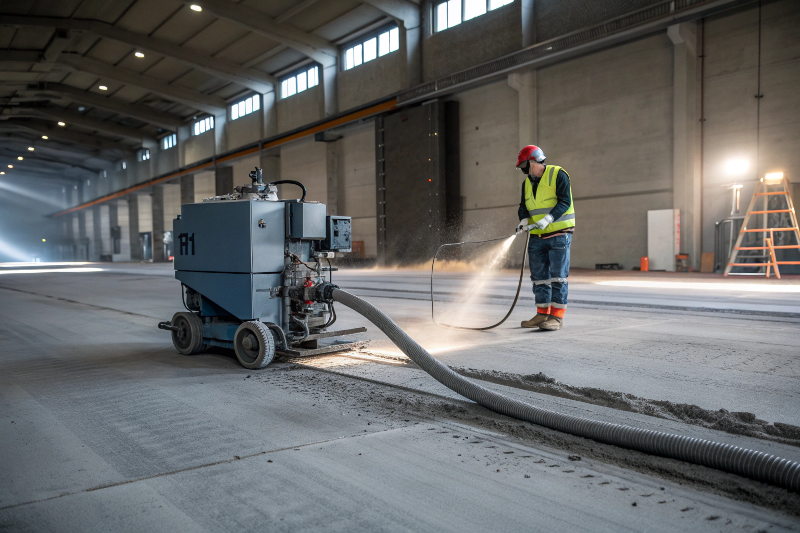
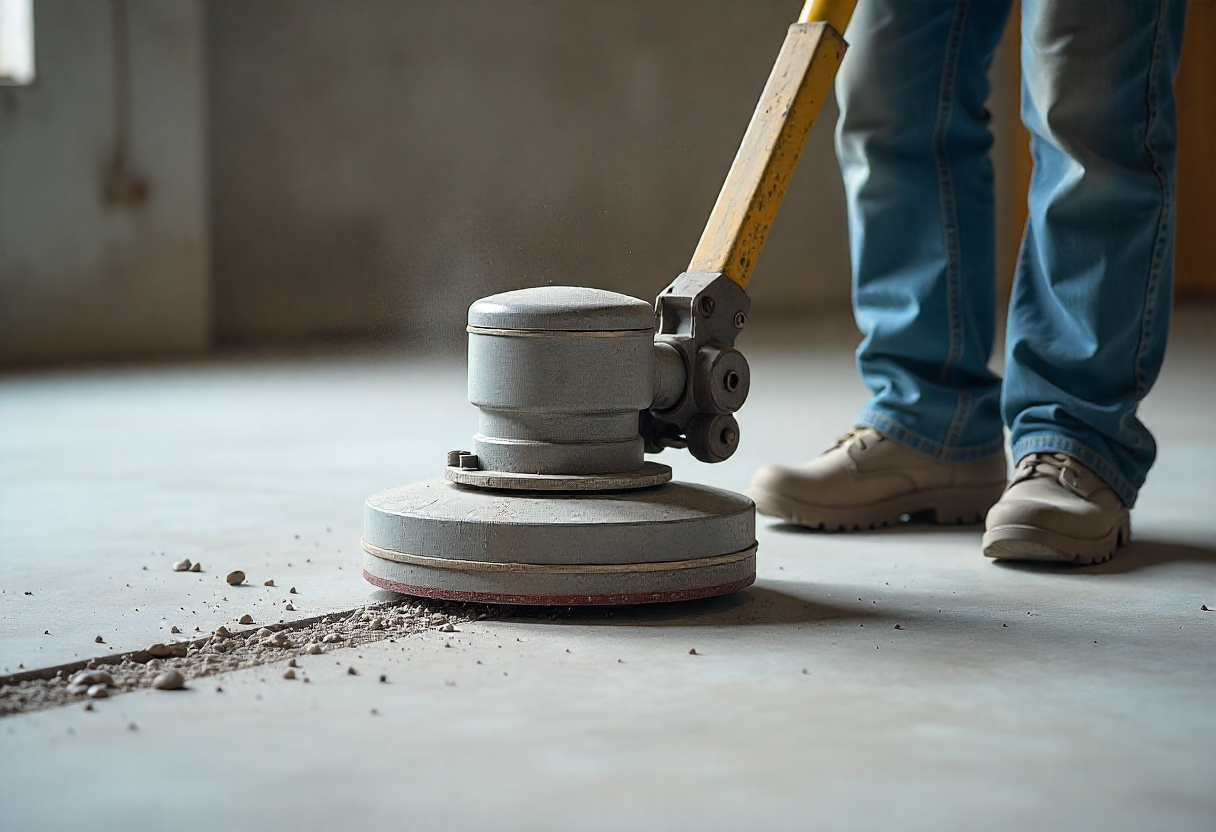
Frequently Asked Questions About Our Industrial Flooring
Some benefits of epoxy industrial flooring include high durability, chemical resistance, easy maintenance, enhanced safety with anti-slip options, and a professional appearance.
The installation time for epoxy industrial flooring can vary depending on the size of the area, the condition of the existing concrete surface, and the project’s specific requirements. On average, it can take a few days to complete the installation process.
Epoxy industrial flooring is versatile and can be customised to meet the specific needs of different industries. It is commonly used in warehouses, manufacturing facilities, food processing plants, automotive garages, etc.
Maintaining epoxy industrial flooring is relatively easy. Regular cleaning with a mild detergent and water, avoiding harsh chemicals, and promptly addressing any spills or stains can help prolong the flooring’s lifespan.
Yes, epoxy industrial flooring can be repaired if damaged. Depending on the extent of the damage, repairs may involve spot treatments, reapplication of epoxy coatings, or other repair methods to restore the flooring’s integrity.
Get Your Free Industrial Flooring Assessment
Ready to see what proper industrial warehouse flooring can do for your Ipswich facility? We’ll come to your site, assess your current conditions, discuss your operational requirements, and provide a detailed recommendation with pricing.
The assessment is free and comes with no obligation. You’ll get professional advice about what your facility needs and what different options will cost. Contact us today to schedule your consultation.


